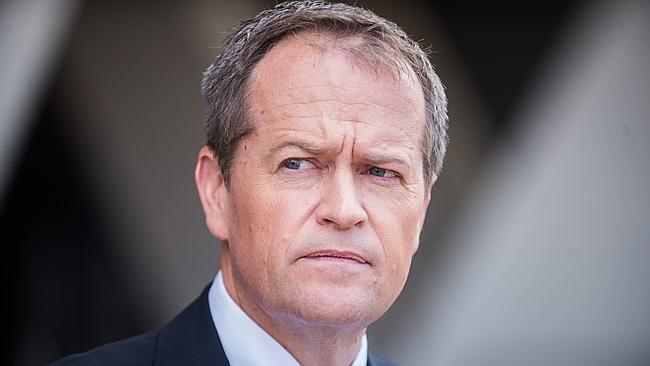When Bill Shorten sits down with Israeli Prime Minister Benjamin Netanyahu this week, he will outline Labor’s policy on the Middle East, which few in his party believe in and is all but certain to be dumped at the next national conference.
On the weekend, Labor’s National Left Organising Group comprising faction heavyweights — parliamentarians, union leaders and party officials — met in Melbourne. Immediate recognition of a Palestinian state was made a priority foreign policy issue to be advocated in the years ahead.
Labor’s Left is expected to have a majority of votes at the national conference next year. The Right has shifted its position to be more pro-Palestinian. There won’t be enough support to maintain the present policy. This creates a headache for Shorten and his staunchly pro-Israel Victorian Labor Right faction.
The party’s present policy, adopted in 2015, supports a two-state solution to be progressed through the peace process. But it adds that should there be “no progress” towards peace, a future Labor government “will discuss joining like-minded nations” and announce “conditions and timelines for the Australian recognition of a Palestinian state”. Within Labor, this policy is seen as no longer tenable given the peace process has stalled.
The right-wing Israeli government’s settlement policy is viewed by senior Labor figures as illegal in international law. Ahead of the Israeli election in 2015, Netanyahu vowed to never support the establishment of a Palestinian state.
Shorten is beset from all sides. While the Left has traditionally been pro-Palestinian, the surprising thing is the change in the Right. Labor’s NSW Right faction has abandoned its previous pro-Israel stance, leaving the Victorian Right increasingly isolated.
Former prime ministers Bob Hawke and Kevin Rudd recently urged Australia to join 137 other nations and grant immediate diplomatic recognition to Palestine.
Former Labor foreign ministers Gareth Evans and Bob Carr, both from the Right, added their support for recognition of a Palestinian state. They see it as in Israel’s interest. Difficult issues such as settlements, the status of Jerusalem and its holy sites, refugee returns and security guarantees for Israel can be negotiated, they say.
“Israel cannot be simultaneously a Jewish state, a democratic state, and a state occupying the whole of biblical Judea and Samaria,” Evans told this column. “Sooner or later, however, many new immigrants (will) arrive in Israel. Within those broader boundaries, Jews will eventually be outnumbered by Palestinians, and if democracy is to prevail, Israel will lose its Jewish identity.”
Carr told me: “Clearly there is a tipping point where the world has got to recognise a Palestinian state. That sends a message to the Israelis against settlements, occupation and annexation. It sends a message to the Palestinians that there is still hope of a state achieved through negotiations with security guarantees for Israel.”
Read the full article by Troy Bramston at The Australian (subscription only).

